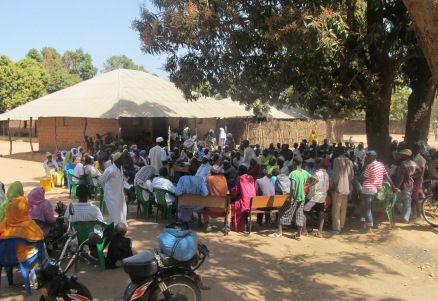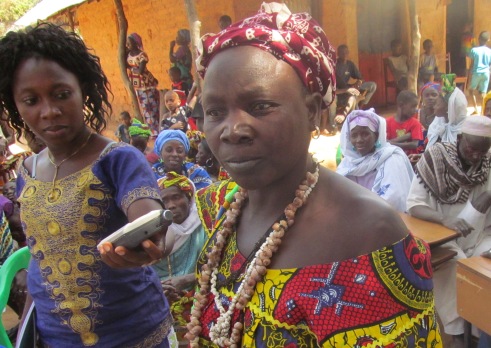Guinea-Bissau: The power of dialogue

Livestock rustling was becoming a major security issue for Bissau-Guineans in the Candjadja region.
This rural area, North East of Bissau, the capital of the country, had been experiencing an escalation in violence for a number of years. Different ethnic groups were endeavoring to stop the theft of cattle and other small farm animals.
Mistrust was endemic
The Mandinga, Balanta, Fula and Mancanha ethnic groups no longer trusted each other. The situation was made worse due to the lack of belief in the police and other state institutions.
With no conflict resolution mechanism to turn to, attempts to stop livestock rustling often turned violent. The fragile peace was being undermined as self styled neighbourhood groups patrolled the areas to ensure the security of their communities. Violence quickly followed because they promoted suspicion and nervous patrolling groups often overreacted.
Community interaction deteriorated and economic activity between villages came to a partial halt. People were regularly attacked and killed on the pretext that they were thieves and mistrust between neighboring ethnic groups became endemic.
Dialogue overcomes deep divisions
The situation became unsustainable. A group of brave individuals came together to form "Cambém-KAFO" meaning 'understanding' in Mandinka. This group turned to Voz di Paz, the Interpeace local partner in Guinea-Bissau for support. They were requested to facilitate dialogue sessions between the different ethnic groups based on the principles of inclusiveness and mutual acceptance.
Meetings built bridges
 Photo credit: Voz di Paz |
Representatives from all ethnic groups were part of the meetings. At the start of each session, all participants came together to participate in the traditional ceremonies of the different ethnic groups. This provided the foundation of understanding and respect from which the relationships were rebuilt. The participants were then able to voice their concerns and bring forward their ideas on how to avoid the violence and resolve the conflicts.
Many people seized the opportunity to share their points of view and together they were able to talk through and then sort out their differences.
"It was a great shock that many people were killed over the problem of theft. Finally, we reached the conclusion that we must sit down and talk about the situation."
- Participant in the discussion that took place on the 28th January, 2012
Cohesion across the different ethnic groups is now being reestablished and the communities living in Candjadja are an example of how dialogue can rebuild bridges and help societies address conflict in non violent ways.
